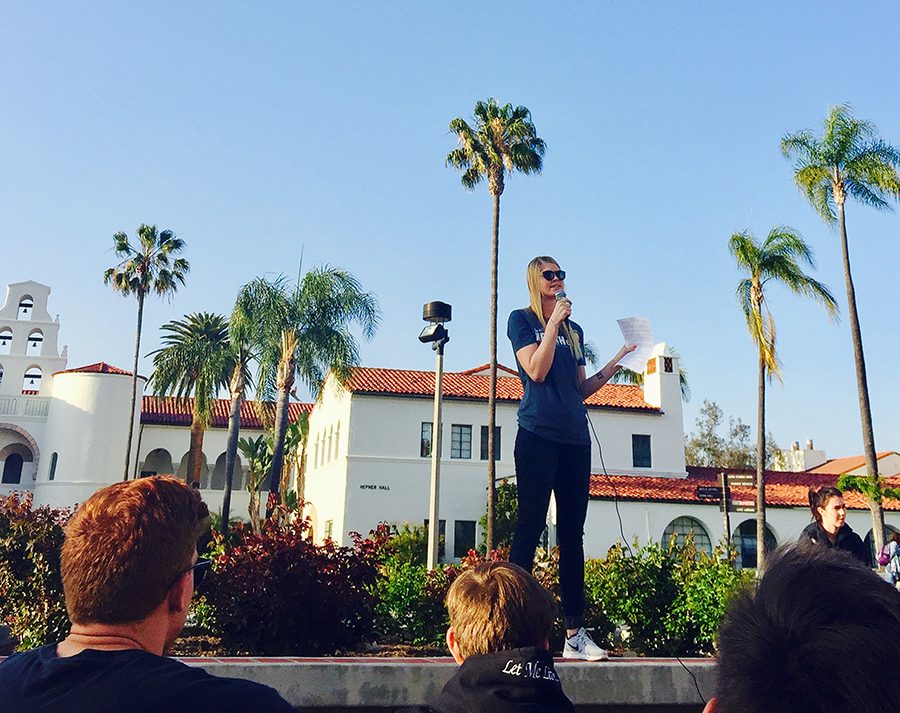In solidarity with the Take Back the Week series, an event titled “#NotSilentBecause: An Honest Discussion about Sexual Assault at SDSU” was held Tuesday, April 11 to engage students in conversations about sexual assault and increase awareness about the resources available on campus.
Organized by the Women’s Resource Center and the “Let’s Talk” initiative, as well as student groups FratMANners and SISSTERS, the event’s lineup of speakers covered various facets of sexual assault education.
Jessica Nare, Women’s Resource Center coordinator and faculty member in the Women’s Studies department, also helped to facilitate “#NotSilentBecause.”
“Sexual assault is common everywhere,” Nare said. “It isn’t an issue that is particular to college campuses. I think, we see increased conversations about institutions like universities because they are microcosms of society and have the ability to create change within their structures.”
Nare led the first portion of the event, a discussion about society’s perpetuation of rape culture as well as ways to combat it.
In an environment in which acts of sexual violence are often minimized, tolerated and excused, what students can do is use their voices when faced with injustice.
Nare ended her presentation by imploring students to ask themselves, “If we don’t want to be a rape culture, what kind of culture do we want to be?”
Interestingly, these presentations were located throughout the campus to represent the prevalence of sexual assault.
The next speaker was Samantha Greeney-Hamlin, a health educator who oversees the operations of the Greek-affiliated FratMANners and SISSTERS programs.
Greeney-Hamlin educated the group on affirmative consent as well as the correct process and importance of attaining it.
The following presentation took place in front of the Calpulli Center to educate the audience on the resources available on campus.
Martin Ducep, associate director of Counseling and Psychological Services, and Jenny Harper, sexual assault victim advocate with the Center for Community Solutions, shared information about services their programs provide.
This could include anything from accompaniment to court, to emotional support to ensure that students feel safe and heard.
The last hour of the event was a lecture from Trisha Amador, deputy district attorney for the Sex Crimes Unit of San Diego County.
The talkative crowd fell silent for Amador’s emotional yet straightforward account of what she calls the “best and worst job ever.”
She shed light on the process of taking these cases to court, an experience that is harsh for perpetrators and unthinkably horrific for victims, all because of one bad moment one bad night.
Amador ended her speech by reminding the audience that, students are ultimately responsible for one another.
“Listening to the discussion on sexual assault was incredibly eye-opening and informative,” said Brandon Lim, a journalism and psychology sophomore. “I learned a lot about such an important and prevalent issue not just on our SDSU campus but in our society as well.”
Although she acknowledges that it will require considerable time and cultural change, Nare said she believes in a future where sexual assault is no longer an issue at SDSU.
“There are a lot of layers to the issue of sexual violence,” Nare said. “Gender roles, lack of comprehensive sex education, misogyny and identity-based forms of oppression to name a few. We need to work to educate folks at younger ages about these issues so that when they begin intimate relationships, they are better prepared.”












